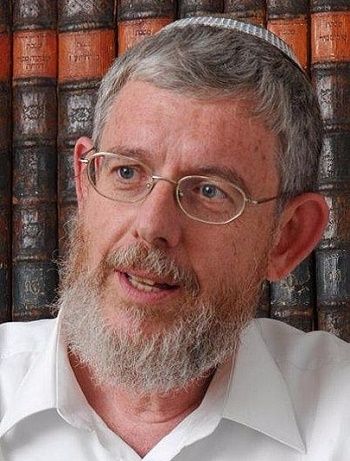 Edit article
Edit articleSeries
Symposium
A Stronger Faith Encourages a Loftier and Deeper Truth

Is the Torah “True”? In What Ways?
The definition of the Hebrew word emet—typically understood as meaning truth—is not simple, and neither is its philosophical meaning.
Descriptive Truth: Interpreting “Eye for an Eye”
Here, for example, are a few statements that are emet regarding the punishment of “an eye for an eye,” found in Exod 21:24, Lev 24:20, Deut 19:21):
- The simplest meaning of the expression “an eye for an eye” is that the punishment for injuring a person’s eye is physical injury to the eye of the injuring party.
- In a given period and places, this may in fact have been the accepted punishment for damaging a person’s eye, and such a law indeed existed among other peoples of the ancient East.
- Another possible meaning of the expression is that adequate compensation must be paid to a person whose eye has been damaged.
- The Rabbis interpreted the expression as requiring payment of monetary damages, and it is this sense of the words that came to be accepted as halachically normative.
The four preceding statements are emet in the sense of logical truth.
So, as well, are the ten competing views recorded by the Talmud (b. Bava Kamma, ch. 8) that seek to explain how the words may be interpreted in such a way as to require monetary remuneration rather than bodily trauma. All are emet if we posit as emet that the Rabbis chose to interpret these words in this way.
Quite a few of these homilies supporting this interpretation may be described as not in keeping with, or even clearly contradicting, the simple sense of the verse. This too is emet, assuming that we somehow can define what the simple sense or peshat of a verse is.
What is the Meaning of Torat Emet?
The King James Bible translates torat emet in Malachi 2:6 as “the law of truth.” This strikes me as a more accurate rendering than “true Torah” or “true instruction,” which some modern translations prefer. I’ve seen a number of Orthodox Jewish translations on websites and parasha sheets offer the Ashkenazi transliteration, “Toras Emes” in place of a translation, which is wonderful because it acknowledges that the expression cannot be satisfactorily translated to English, because the Hebrew phrase has a meaning all its own.
How Should We Study Torah to Uncover Truth?
An effort to interpret the verse in light of the sanctity of both the Written and the Oral Torah, reverence for Torah scholars, and an earnest desire to discover and practice the values inherent within it is Torah study of emet, which is to say that emet is a property not of the text itself, but of the way it is studied.
(Not) Reconciling Traditional Belief and Modern Outlook
I don’t see a particular need to reconcile my traditional belief system with a modern view of the world. Believers have spent two millennia interpreting the Torah and refining their faith without being dogmatic—certainly without taking the simple sense of the Torah as necessarily authoritative.
Maimonides did not hesitate to reinterpret all of the verses that personify God to conform with his stark religious opposition to any possibility of divine corporeality, going so far as to reinterpret stories of encounters with angels as the stuff of dreams and visions (Guide of the Perplexed, 1:1-30). Both he and Rabbi Yehudah ha-Levi stated that were it proven to them that the world had not been created, but always had existed, they would have no trouble assigning a nonliteral meaning to the biblical account of Creation and to reconcile it with this new information. (Guide of the Perplexed 2:24; Kuzari 1:67).
It follows that there is nothing to deter us from harmonizing verses or Rabbinic statements with recently gained knowledge, or from giving preference to an interpretation that hews closer to our worldview than others authored to mesh with philosophies that no longer inform our thinking. As I demonstrated in a chapter published in Be-Einei Elohim ve-Adamand illustrated by the impressive collection of sources marshaled by Yoshi Farjun, it is possible to find support for virtually any new “heretical” idea in perfectly “kosher” sources.[1]
The key challenge is to enable individuals whose view of reality is naive, even childish, to contend with new information that otherwise would be likely to overturn their spiritual existence. This is an extremely delicate operation, because repairing something that has been ruined is far more challenging than reinforcing it ahead of time.
The right way to go about this process, as explained by great Torah scholars from Maimonides to Rabbi Kook, is to start by constructing a deeper and loftier religious sensibility. Once this has been done, without further prodding, the individual will stop making do with popular or childish religious notions and will be able to assimilate “modern ideas,” such as Maimonides’s rejection of anthropomorphism in the medieval period and certain aspects of biblical criticism in ours.
TheTorah.com is a 501(c)(3) nonprofit organization.
We rely on the support of readers like you. Please support us.
Published
September 13, 2015
|
Last Updated
March 13, 2024
Previous in the Series
Next in the Series
Footnotes

Dr. Rabbi Yehuda Brandes is the president of Herzog college in Alon Shvut, and was previously head of Beit Morasha, the Center for Advanced Judaic Studies and Leadership in Jerusalem, and was among the founders of the Ma’aleh School of Television, Film and the Arts. Brandes holds a Ph.D. in Talmud from the Hebrew University and rabbinic ordination from the Israeli Chief Rabbinate. He is the author of Judaism and Human Rights [Hebrew] and coeditor (with Tova Ganzel and Chayuta Deutsch) of People of Faith and Bible Criticism [Hebrew].
Essays on Related Topics:





